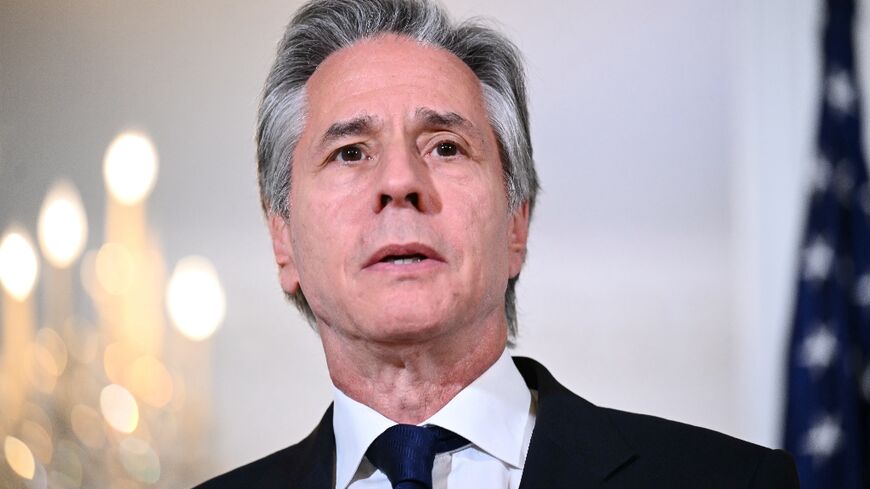Trump can negotiate to stop Iran from getting nuclear bomb: Blinken

US Secretary of State Antony Blinken said Wednesday that President-elect Donald Trump had a window to negotiate with Iran, saying the development of a nuclear weapon by Tehran was not inevitable.
The outgoing top US diplomat acknowledged that the cleric-run state may be more seriously considering a nuclear weapon after military setbacks in the region.
In the last year, Israel's military has hit Iranian air defenses and weakened its Lebanese ally Hezbollah, while rebels have toppled its main Arab ally in Syria, Bashar al-Assad.
"I don't think that a nuclear weapon is inevitable," Blinken said at the Council on Foreign Relations in New York.
As "they've lost different lines of defense, sure, you're going to see more thinking about that," Blinken said.
But the US secretary of state said Iran was aware of the consequences of obtaining a nuclear weapon and added: "I think there is the prospect of negotiations."
Iran denies pursuing a nuclear weapon, saying its contested nuclear work is for peaceful purposes.
In his first term, Trump pulled the United States out of a 2015 nuclear deal with Tehran that was negotiated under former president Barack Obama, and then imposed sweeping sanctions.
"President Trump last time around in pulling out of the deal said that he wanted, as he called it, a better, stronger deal. Fine," Blinken said.
He said that no US administration would allow Iran to obtain a nuclear weapon.
"One way or another, I'm convinced that just as our administration had that policy, the next administration will too," he said of preventing Iran from developing a nuclear weapon.
US President Joe Biden's administration on taking office in 2021 entered indirect talks with Iran to restore the nuclear deal.
Talks collapsed largely over disputes on the scope of US sanctions relief and Biden has backed pressure on Iran over its support for Palestinian armed group Hamas since its October 7, 2023, attack on Israel.
Trump's billionaire ally Elon Musk reportedly met with a senior Iranian official following the US election in a bid to encourage calm.
Blinken also rejected calls for the United States to work to topple the government of Iran, which has opposed Washington since the overthrow of its US-backed ruler in a popular uprising in 1979.
"I think if we look at the last 20 years, our experiments in regime change have not exactly been resounding successes," Blinken said.
Blinken acknowledged domestic opposition to Iran's current cleric-run state structure, but said it was not "quite as clear-cut as that."
Opposition is "reflective of at least half the population, but not the entirety of it," he said, pointing to differences between cities and rural areas.
"There's a very conservative element in Iran that's significant in number that probably remains beholden to the regime," he said.




